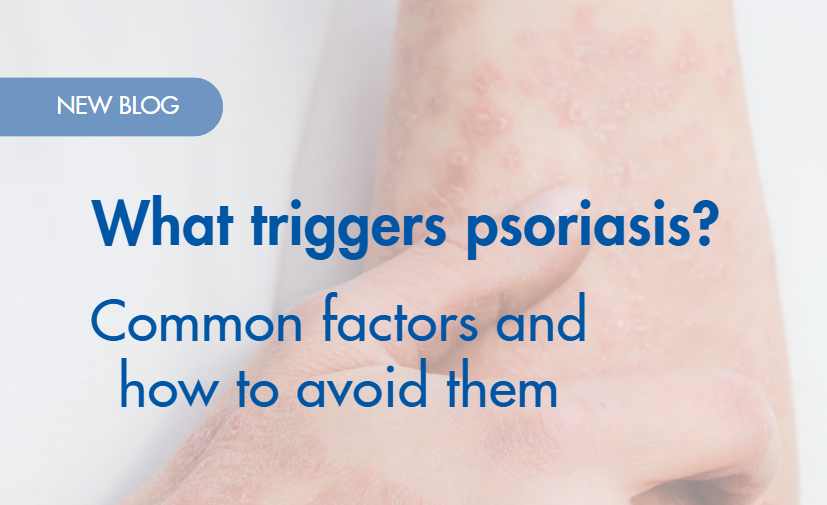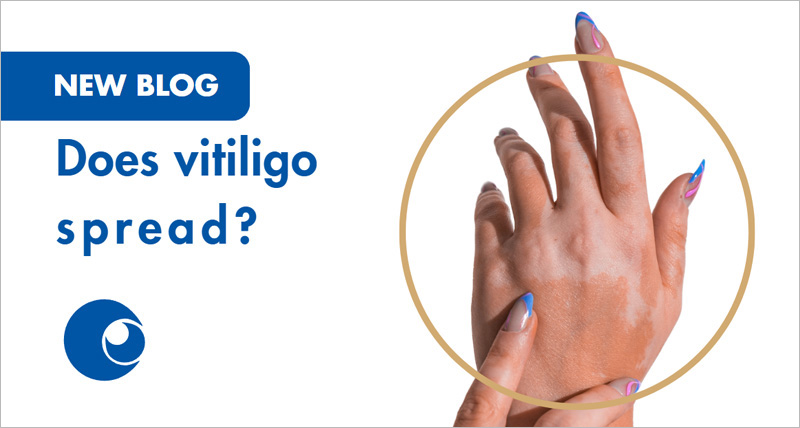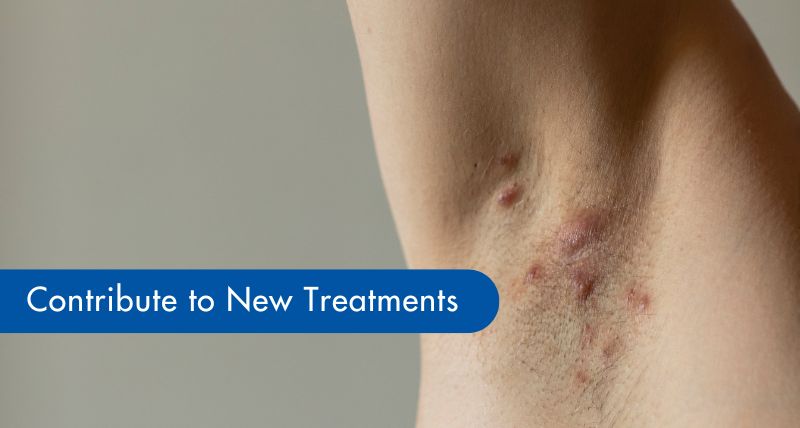Some medical conditions are managed by identifying and avoiding known triggers that worsen symptoms. Someone with asthma, for example, might try to avoid pollen or dust mites. Someone with irritable bowel syndrome might avoid certain foods. Someone prone to migraines might avoid bright lights or stress.
Managing psoriasis also involves identifying and avoiding triggers that worsen your condition.
What is psoriasis?
Psoriasis is a non-contagious, chronic, inflammatory skin condition that causes itchy, flaky skin, often in red, scaly patches. It can be irritating, uncomfortable and, at times, hard to manage.
Psoriasis can appear anywhere on the body but is most commonly found on the elbows, knees and scalp. It happens because skin cells grow too quickly, resulting in new ones appearing before the old ones have shed.
There are several different types of psoriasis and a range of treatment options. Psoriasis can’t be cured but it can be managed. It may flare up at certain times but then go into remission for a while.
Understanding what can trigger those flare-ups gives you the chance to avoid certain things to improve your skin’s health.
Common psoriasis triggers
A trigger is something that causes your psoriasis symptoms to worsen. Triggers vary from person to person but can include everyday things. Here are a few.
Stress
Exams, looming deadlines, an excessive workload, grocery bills, kids, traffic – let’s face it, there’s no shortage of stress in today’s world.
Unfortunately, stress can trigger psoriasis. If you’re already feeling the pressure, the last thing you need is irritated skin.
Learning how to manage stress is a vital skill for living with psoriasis. You might try:
- Deep breathing exercises
- Meditation
- Exercise
- Unburdening yourself to a close friend
- Seeing a psychologist.
Cigarettes and alcohol
Alcohol forms a large part of Australian culture but, if you have psoriasis, alcohol comes with a health warning. Psoriasis patients who drink alcohol may experience:
- More severe psoriasis symptoms
- Reduced response to treatment
- Greater risk of other conditions, such as cardiovascular disease, cancer, arthritis or liver disease.
Similarly, smoking can make psoriasis more difficult to treat and can increase its severity.
Foods
Certain foods are known to increase inflammation, which can worsen psoriasis symptoms. They can also increase your weight – which also leads to inflammation.
Try to reduce your intake of highly processed foods such as:
- White bread, rice and pasta
- Refined cereals
- Fatty foods like red meats, cheeses, fast food, fried foods
- Sugary foods like juices, sweets or cakes.
Some people with psoriasis find that their symptoms ease if they cut back on dairy or gluten.
Infections and injuries
When you get an infection, your immune cells produce inflammatory proteins to help fight the illness. That can aggravate psoriasis, resulting in a flare-up of symptoms. Bacterial, viral and fungal infections have all been shown to exacerbate psoriasis, often for 2-6 weeks.
Cuts or other injuries to your skin may also trigger a psoriasis flare.
The weather
Dry, cold weather and sunny, warm weather can both trigger psoriasis.
If your psoriasis flares during dry cold weather, try to:
- Have short baths or showers using warm, rather than hot, water
- Use plenty of moisturiser
- Use a humidifier at home if the air feels dry
- Wear warm clothes
- Heat your home but avoid being in direct heat (where your skin feels warm).
If your psoriasis is made worse by warm, sunny weather, try to:
- Apply moisturiser regularly, especially if you’re in air-conditioned environments
- Follow sunsmart advice, including applying sunscreen, to prevent sunburn.
How can we help?
Our dermatologists are experienced in managing psoriasis, helping to ease your symptoms. We offer a range of treatments including:
- Medication (both topical and oral)
- Phototherapy (light therapy)
- Advice and support to help you develop a psoriasis-friendly lifestyle.
Please book an appointment today.
Disclaimer
All information is general and not intended as a substitute for professional advice. Sinclair Dermatology can consult with you regarding your individual health needs.
References
- National Psoriasis Foundation, Life with psoriasis, https://www.psoriasis.org/life-with-psoriasis/#, [Accessed 3 December 2024]
- Kearney N, Kirby B. Alcohol and Psoriasis for the Dermatologist: Know, Screen, Intervene. Am J Clin Dermatol. 2022 Nov;23(6):881-890. doi: 10.1007/s40257-022-00713-z. Epub 2022 Aug 23. PMID: 35997945; PMCID: PMC9576661. https://pmc.ncbi.nlm.nih.gov/articles/PMC9576661/, [Accessed 3 December 2024]
- National Psoriasis Foundation, Smoking and psoriasis, https://www.psoriasis.org/advance/smoking-and-psoriasis/, [Accessed 3 December 2024]
- Johns Hopkins Medicine, Psoriasis diet: Foods to eat and avoid if you have psoriasis, https://www.hopkinsmedicine.org/health/conditions-and-diseases/psoriasis-diet-foods-to-eat-and-avoid-if-you-have-psoriasis, [Accessed 3 December 2024]
- Zhou S, Yao Z. Roles of Infection in Psoriasis. Int J Mol Sci. 2022 Jun 23;23(13):6955. doi: 10.3390/ijms23136955. PMID: 35805960; PMCID: PMC9266590. https://pmc.ncbi.nlm.nih.gov/articles/PMC9266590/, [Accessed 3 December 2024]
- American Academy of Dermatology Association, Are triggers cousing your psoriasis flare-ups? https://www.aad.org/public/diseases/psoriasis/triggers/flares#, [Accessed 3 December 2024]







